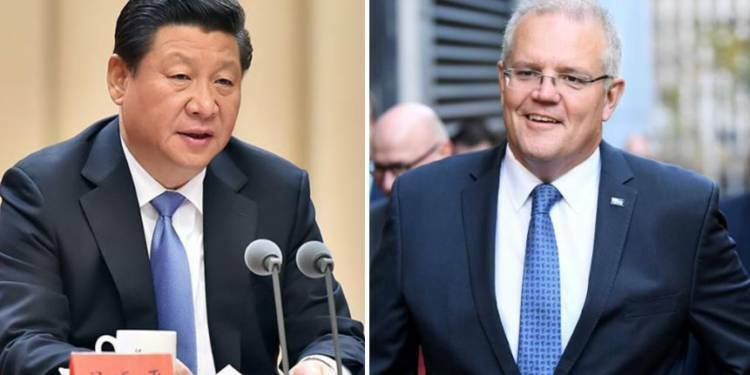Xi Jinping’s desperate attempts to make Australia suffer economically during the pandemic went haywire as, even though Australia climbed out of recession, Chinese steel and power generation industries suffered greatly and thus is set to accept 70 cargo ships worth of Australian Coal which have been sitting at its harbour.
China plans to accept stranded Australian cargos of coal which would encourage the logjam of ships stacked off its coast for months.
The shipments that could be cleared were those arrived before an Australian Coal Ban was issued, a well-known individual who wished to remain unidentified said because the discussions were private.
It is difficult to establish its starting date due to the opaque existence of the Australian ban, which Beijing has never approved officially.
As early as May, the government was widely speculated to have directed its five largest utilities to suspend Australian purchases, while power stations and steel mills were advised to cease using Australian coal in October.
According to data intelligence firm Kpler, much of the stranded coal is the form used to produce steel, while a smaller portion is used for power generation.
For both forms of coal this winter, China had to face record prices. The worst winter freeze in decades has pushed demand for heating to an all-time high, tumulating the country’s energy markets.
Meanwhile, the Chinese steel mill is chasing out record volumes to feed the government-funded boom in infrastructure to rescue the economy following the damage of the pandemic of coronavirus.
The total annual number of Chinese imports of coal rose over 300 million tons from all countries and to record levels in December, making them the highest since 2013. Australia has been the second-largest supplier after Indonesia in recent years.
Jinping’s misguided trade war with Australia has brought the Chinese state to a halt. The trade embargos have systematically jolted and brought down entire industries to its knees. Xi Jinping is responsible for murdering the Chinese steel industry as power generation has greatly suffered. This has led to the general standard living conditions in the state to suffer.
The unofficial trade embargo was a result of a major diplomatic standoff between the governments of the two states, but the results have been far from favourable for China, unlike Australia which has shown a considerable rise, enough to put it out of an economic recession which Australia suffered for the first time in three decades.
Xi has annihilated coal-based industries in China through a ban on Australian coal. Steel processing is one of these coal-based industries. China has been a leading global steel producer up to now. It generated just over half of all steel goods. The shortage of coking coal, a main raw material in steel production, has, however, hit the steel industry in China seriously. Thus making it hard to produce properly in the absence of Australian coal.
China will import from Russia to compensate for this shortage of Australian coal. And this is a catastrophe strategy because Chinese manufacturers have invested extensively in equipment intended solely for coal from Australia.
Moreover, in an urgent effort to maintain high levels of construction activity, the Xi administration is trying to import scrap steel. But that means that the President of China is becoming more convoluted in his own commercial battles. Xi just violently massacred China’s domestic stainless steel industry by importing scrap steel to encourage construction activity and China’s development in turn. As such, Xi’s solutions to fix steel shortages just highlight Beijing’s weaknesses.
In fact, any bottlenecks on construction and steel production – the two principal pillars of China’s economic growth – would cause Chinese growth only to slide dramatically.
Also, China is already realizing how Xi’s attempts to punish Australia will destroy the communist nation’s quality of life. The significant sector of Chinese power generation has been limited by the amount of coal on offer. In the Communist Country, the power sector has been unable to maintain itself in response to the coal scarcity.
Thus, unable to accept total defeat, as it would result in public humiliation on a global scale, China facing severe coal shortages is now ready to accept the Australian Coal that has been sitting on its ports while terming it as an action that would help clear the logjam. China needs the coal and it is accepting it because without it can go down under.
